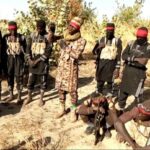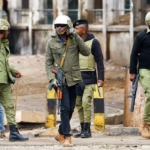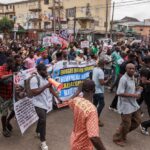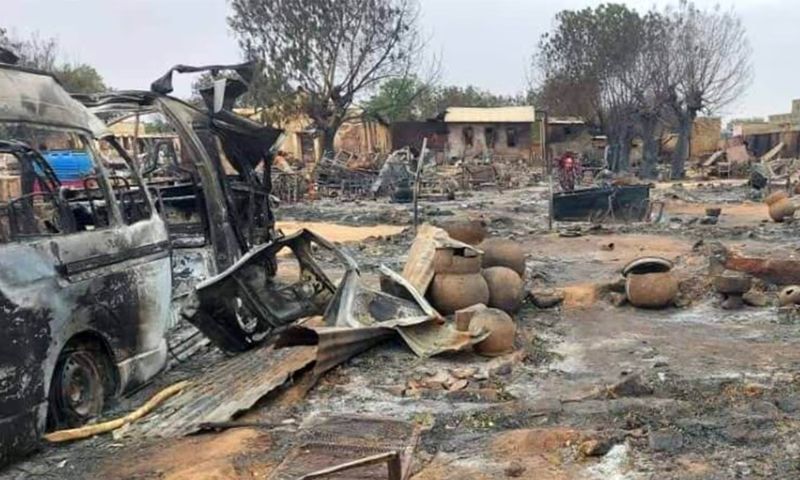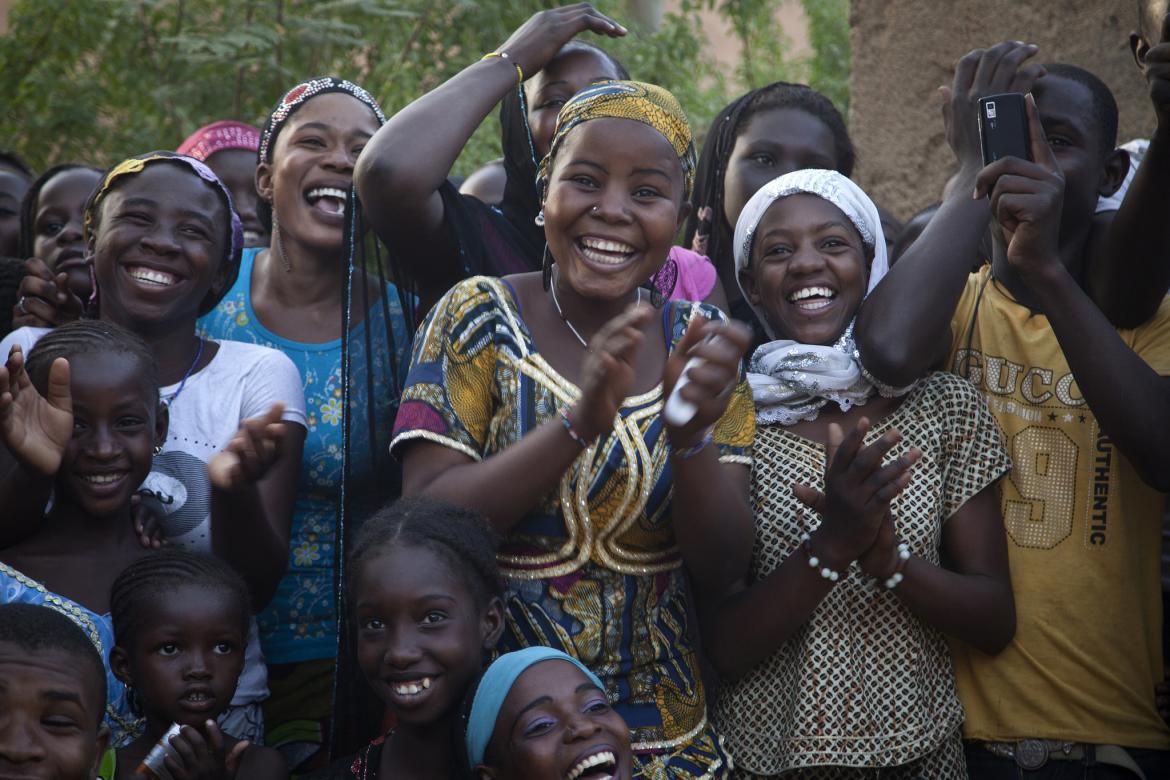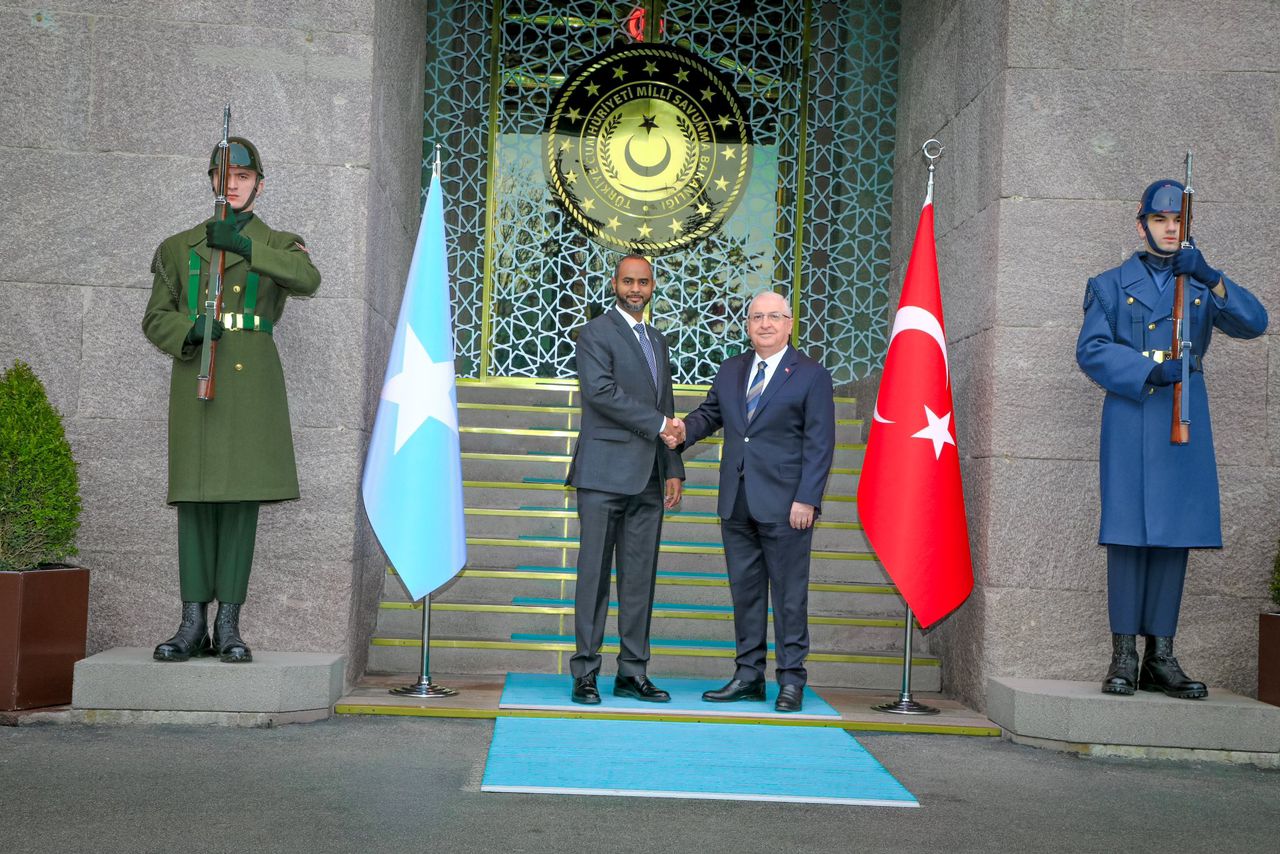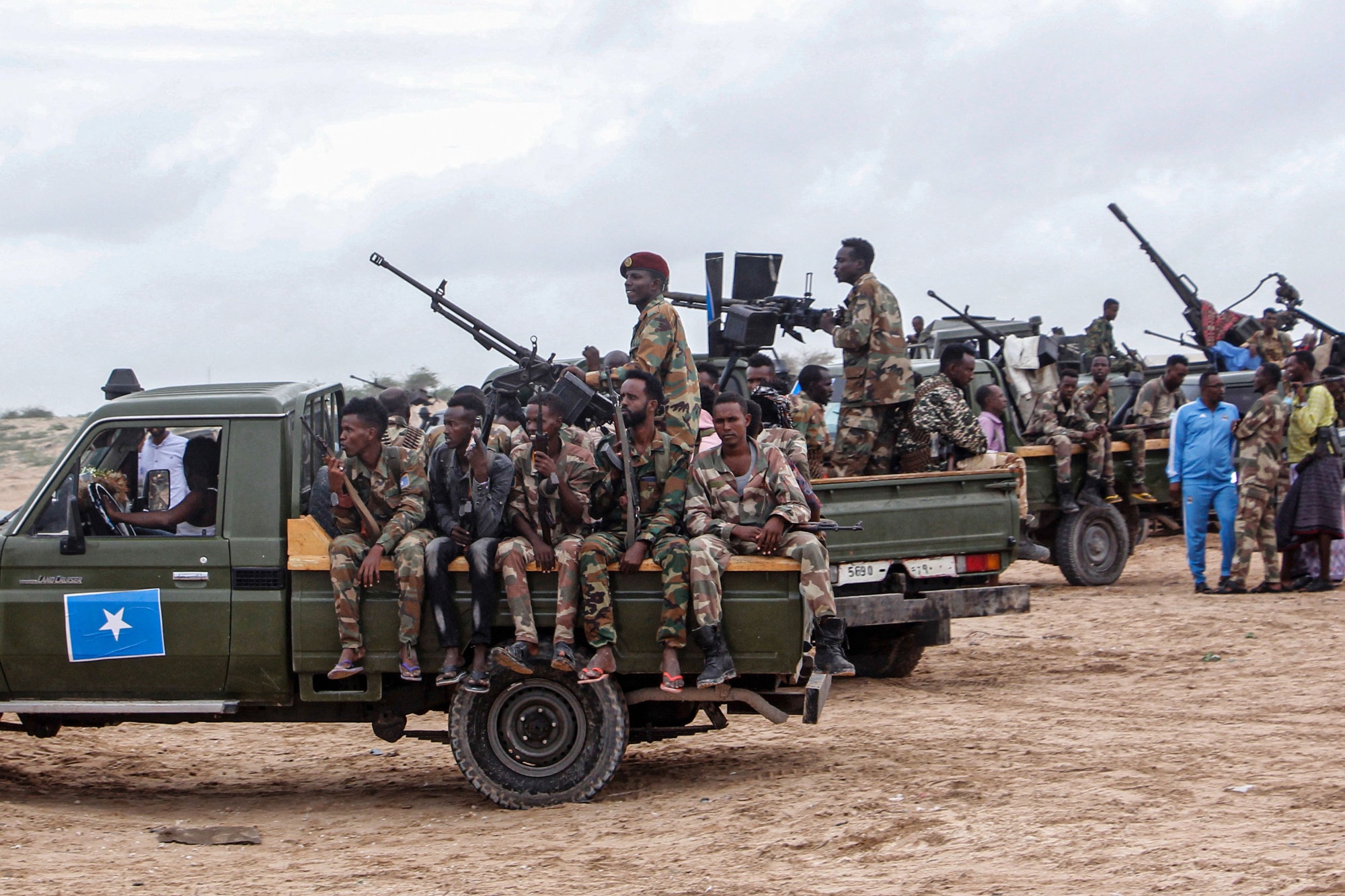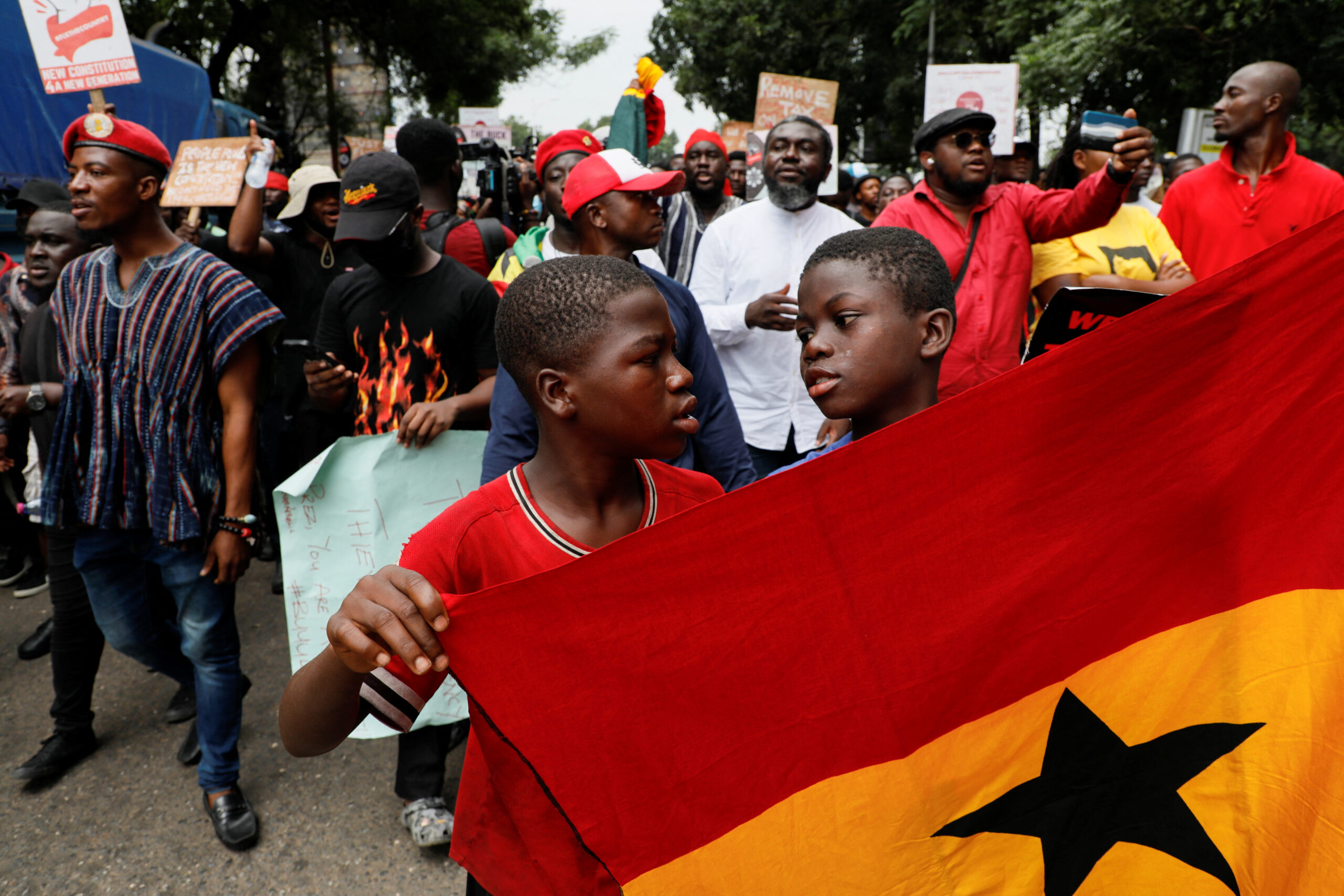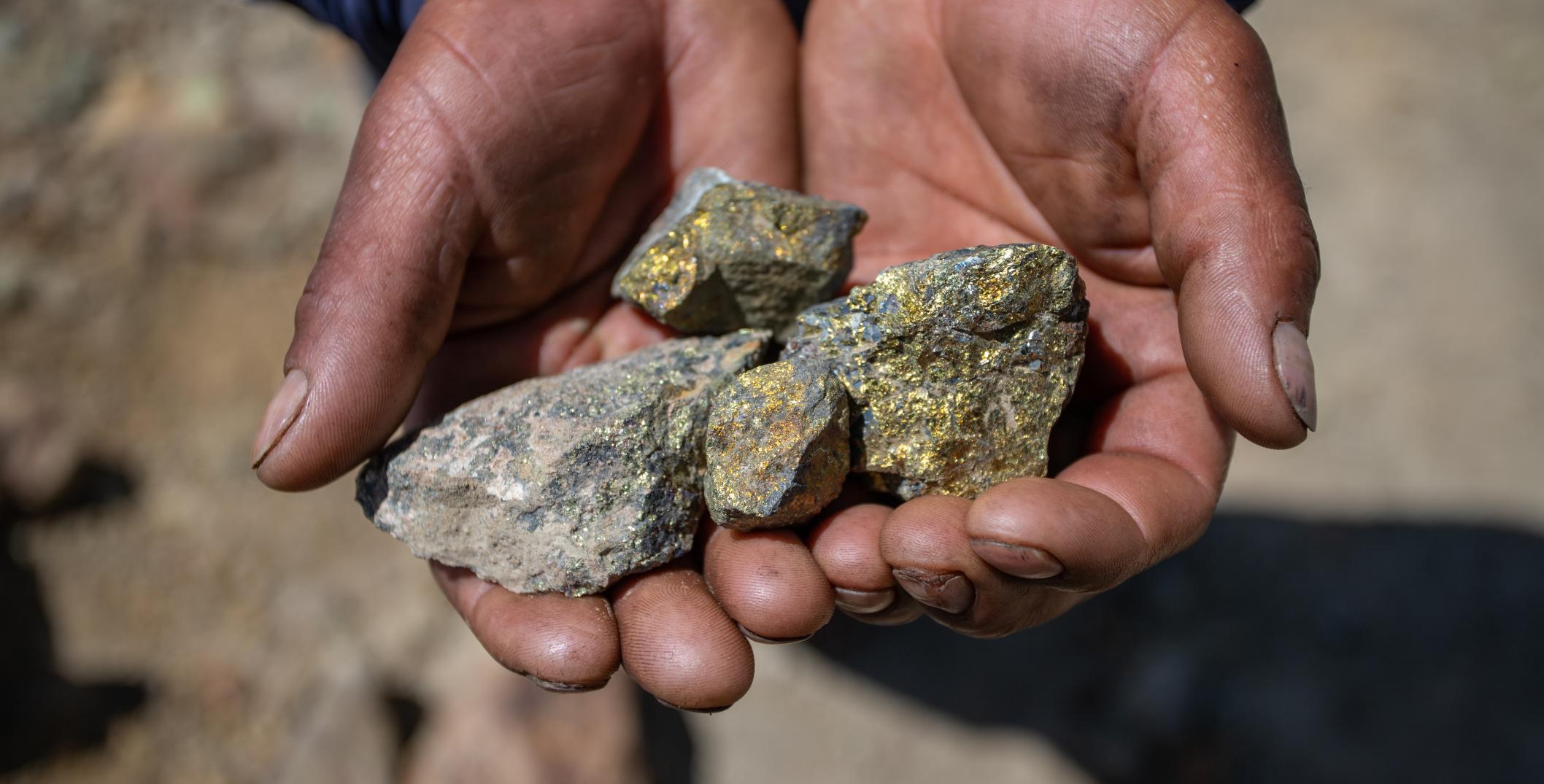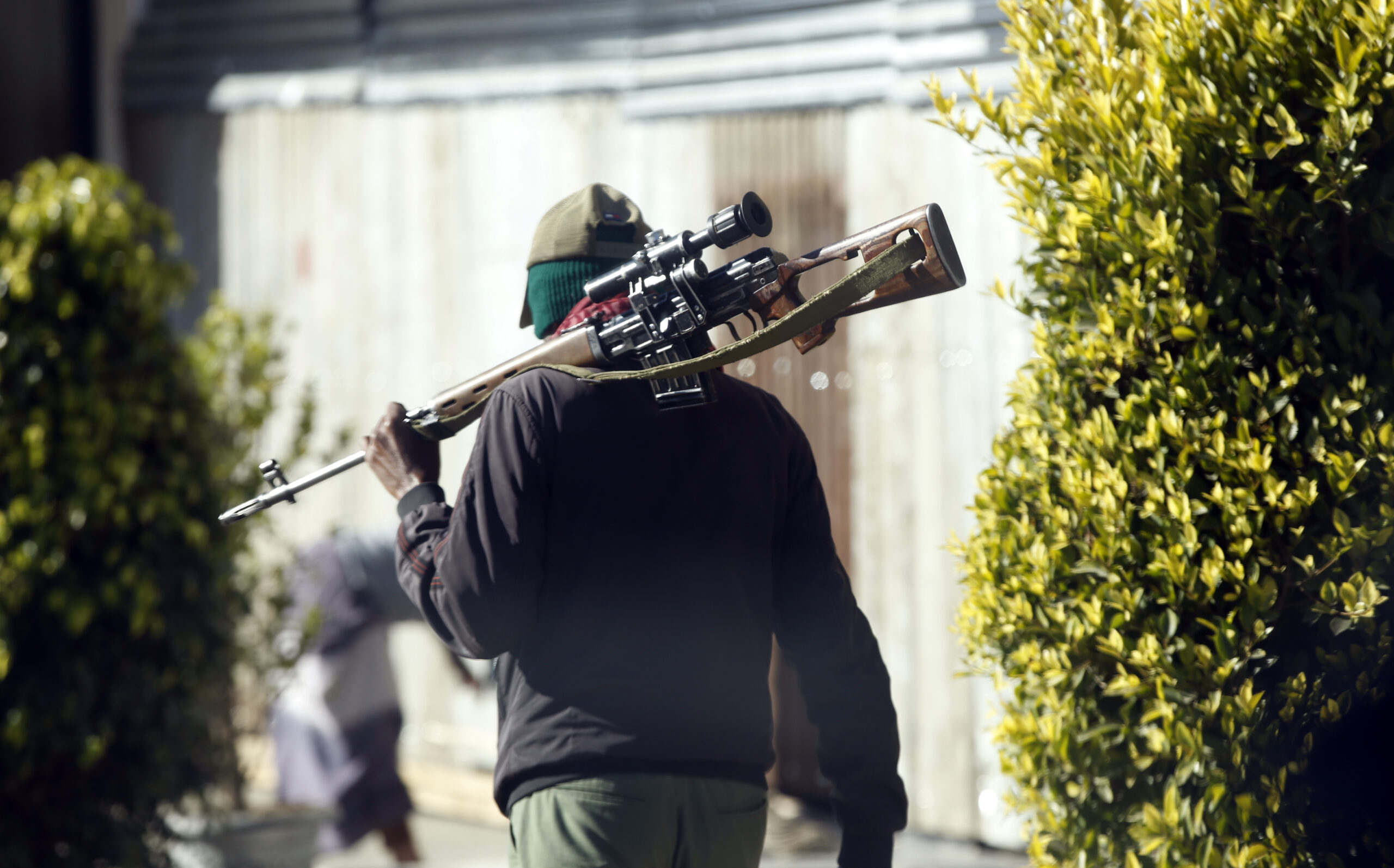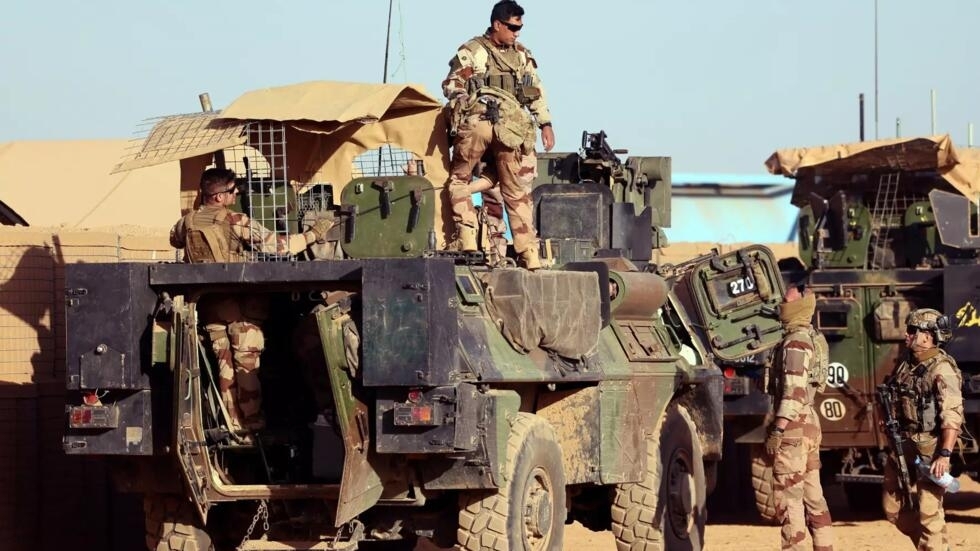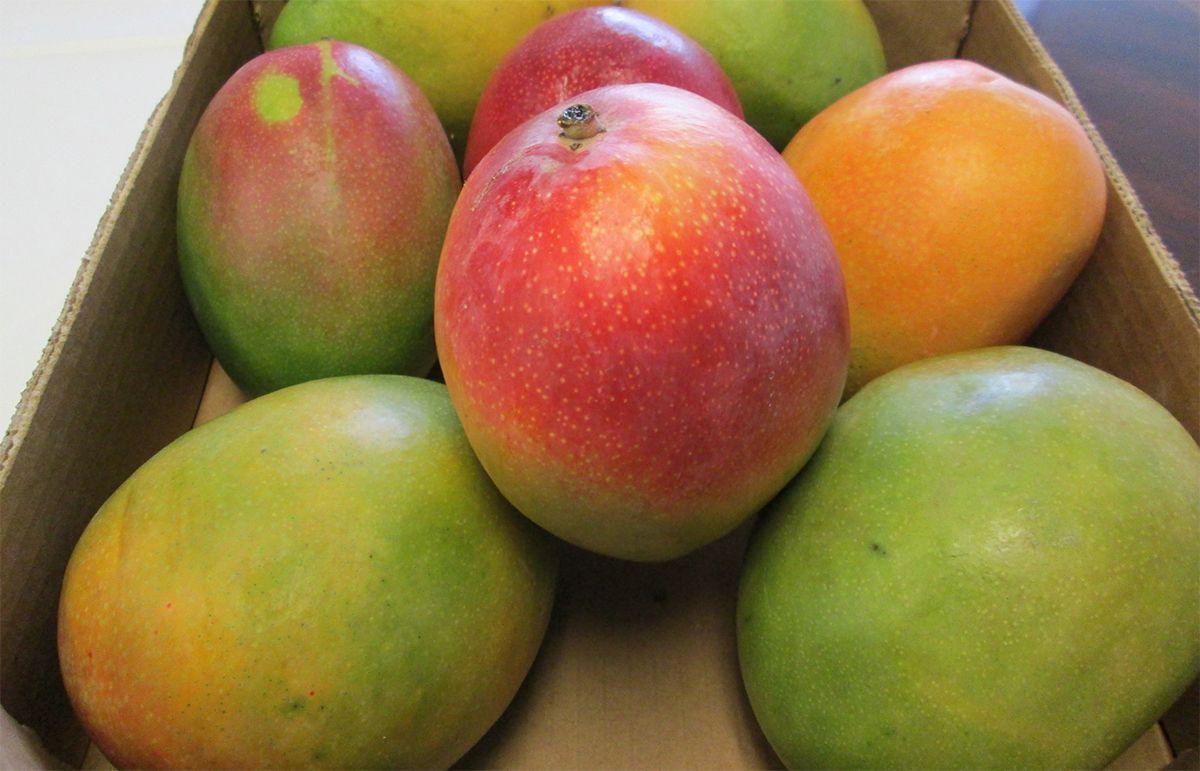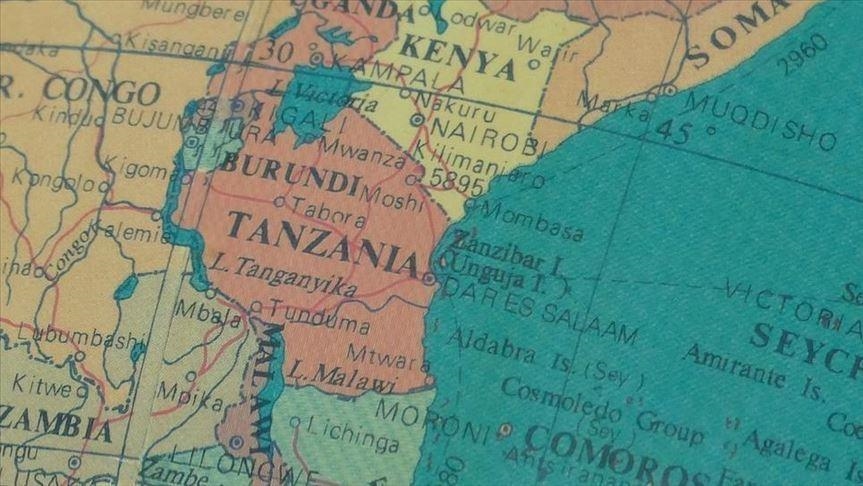Kenyan court rules Meta can be sued over content moderator firings
A Kenyan court of appeal declared Friday that Meta can be sued in Kenya over the firing of dozens of content moderators. The decision paves the way for a legal battle between the Facebook parent company and the aggrieved moderators, who allege wrongful termination. In a statement, their lawyer Mercy Mutemi applauded the ruling, saying: “The Court of Appeal has today upheld the Employment Court’s decision that Facebook can be sued in Kenya.” Noting that the cases by the content moderators could now proceed, he said Facebook had “argued it’s a foreign company that can’t be sued in Kenya.” The development follows an out-of-court settlement in August last year, where Meta reached an agreement with the group of content moderators who had previously sued the company over similar claims of unjust dismissal. The dispute originated from when 260 Kenyan-based content moderators employed by Sama, a company contracted by Meta for content moderation, were abruptly informed of their redundancy in March 2023. In response, the moderators filed a lawsuit against Meta, asserting that their terminations were unlawful and lacked valid justification. This incident was not the first legal challenge Meta has faced in Kenya. In December 2022, the company was sued for $2 billion over accusations of exacerbating ethnic violence in the East African country, as well as in neighboring Ethiopia.
Maiduguri faces crisis as devastating floods hit West Africa
Torrential rains across Central and West Africa have caused devastating floods, with Maiduguri, the capital of Nigeria’s Borno state—already struggling with an ongoing insurgency—bearing the brunt of the disaster. This year alone, the floods have claimed over 1,000 lives and displaced hundreds of thousands in countries like Chad, Nigeria, Mali, and Niger. The United Nations reports that more than four million people have been affected in West Africa, a dramatic increase from last year. As rescue operations continue, the exact death toll remains uncertain, but preliminary figures indicate at least 230 deaths in Nigeria, 265 in Niger, 487 in Chad, and 55 in Mali, which has seen its worst flooding since the 1960s. Despite contributing only a small fraction of global greenhouse gas emissions, Africa is highly vulnerable to extreme weather, with adaptation costs projected to reach $30-50 billion annually over the next decade. Maiduguri is in crisis, as the region has faced a relentless wave of attacks from Boko Haram, resulting in over 35,000 deaths in the past decade. Local resident Saleh Bukar recalled being awakened by neighbors’ urgent cries for help as floodwaters surged. Many older adults and those with disabilities were unable to escape in time, leading to tragic losses. With over 600,000 people displaced in Borno state alone, the local government struggles to cope. Recent floods have devastated wildlife, destroyed vital infrastructure, and caused significant structural damage, including the collapse of key bridges and a dam that released vast amounts of water into the city. Governor Babagana Zulum has called for urgent international aid, emphasizing that local resources are overwhelmed. The World Food Program is providing food assistance, but many survivors report feeling abandoned. In Niger, floods have affected over 841,000 people, with single mother Harira Adamou lamenting the loss of her home and the absence of state support. She and her children are now living in a temporary shelter, fearing more rains. As Maiduguri remains partially submerged, forecasts suggest further rain, prompting warnings of additional flooding. Bukar, displaced and living in a shelter with thousands, has taken it upon himself to help others while grappling with his own loss. “I am volunteering to help, but I am also a victim,” he said, highlighting the resilience of the community amid profound suffering.
Somalia accuses Ethiopia of illegally arming Puntland
Somalia has demanded an immediate cessation of Ethiopia’s unauthorized arms shipments to Puntland, citing documented evidence of the deliveries.
UN raises alarm over mpox cases among Burundian children
Children in Burundi are disproportionately affected by the ongoing mpox outbreak, prompting UNICEF to lead the response efforts.
UN warns of escalating Sudan crisis as aid falls short
Efforts to deliver aid are severely hindered by a significant funding gap, with only $1.3 billion of the $2.7 billion needed for 2024 having been secured so far
Burundi’s children hit hard by mpox outbreak in Africa
UNICEF medical doctor says mpox showing ‘alarming rates of infection’ in the central African country
Africa’s youth: A force for innovation and growth
Africa holds the distinction of being the youngest continent on the planet
Mali militant attack damages UN-chartered plane
The plane was on the ground in Bamako at the time of the attack.
Rwanda: First mpox vaccines administered in Africa
The African Union’s disease control center has initiated a vaccination program targeting high-risk individuals.
West, central Africa displacement doubles in 5 years
Conflict and instability have forced millions from their homes, straining resources and exacerbating suffering.
Ousted Gabonese president quits politics, demands release of family
The 65-year-old former leader also called for the release of his wife, Sylvia Bongo, and their son, Noureddin, who are currently in detention facing corruption charges
Somalia commends Turkey for steadfast support
Horn of Africa country honors Turkish envoy, official for their services
RSF wants peace, accuses Sudanese military of prolonging conflict
RSF accused the military of obstructing a genuine ceasefire and hindering progress towards lasting peace
Nigerian flood victims face steep canoe fees amid crisis
The worst flooding in 30 years followed a dam collapse caused by torrential rains, which also impacted regions across West and Central Africa
South Africa holds 70% of global platinum reserves
This precious metal plays a critical role in a variety of industries
Somali army apprehends senior al-Shabaab ringleader
Somalia announced on Wednesday that it has apprehended a senior member of the terrorist organization al-Shahaab in the central Galgadud region. The Somali National Army (SNA) apprehended Ali Geelle, a senior al-Qaeda-affiliated terrorist group al-Shabaab ringleader, during a military operation in the central region of Galgadud, the country’s Defense Ministry said in a brief statement. “The arrest, carried out in Galhareeri district, Galgaduud region, also led to the seizure of a vehicle, a firearm, and ammunition,” the ministry stated on X, adding that Geelle was responsible for extortion and the abhorrent practice of recruiting children for the terror outfit. The Somali National Army, backed by local militias, has been fighting al-Shabaab in south-central provinces for the past two and a half years, liberating large swaths of territory, including the strategic coastal town of Haradhere in the Mudug region. Somalia has been plagued by insecurity for years, with the main threats emanating from al-Shabaab and the Daesh/ISIS terror groups. Since 2007, al-Shabaab has been fighting the Somali government and the African Union Transition Mission in Somalia (ATMIS) — a multidimensional mission authorized by the African Union and mandated by the UN Security Council. The terror group has stepped up attacks since Somali President Hassan Sheikh Mohamud declared an “all-out war” on the group.
NDC protests across Ghana, demands voter roll audit
Ghana’s largest opposition party, the National Democratic Congress (NDC), held nationwide protests on Tuesday, demanding an audit of the voter roll ahead of the December general elections. Millions of supporters participated in demonstrations across all 16 regional capitals, including the capital, Accra, according to NDC member of parliament Samuel Okudzeto Ablakwa. NDC Chairman Johnson Asiedu-Nketiah emphasized the party’s demand for free and fair elections, stating, “We are not asking for a big favor from the electoral commission.” The NDC claims to have identified nearly 300,000 irregularities, including unauthorized transfers and removals of voters’ names. Omane Boamah, the NDC’s director of elections, called for the United Nations Development Programme (UNDP) to facilitate an independent audit, suggesting that the electoral commission may be hiding something. Ghana has a strong history of peaceful and transparent elections, but recent allegations of voter roll irregularities have raised concerns about potential democratic backsliding. The electoral commission has dismissed the NDC’s call for a forensic audit as “misguided.” Asiedu-Nketiah urged immediate action to prevent any threats to democracy, warning that complacency could lead to conflict. The protests culminated in a petition delivered to parliament and the electoral commission, demanding a bipartisan inquiry into the electoral commission’s conduct and an independent forensic audit of the voter register, with the immediate publication of the findings. This year’s elections, set for December 7, will be the ninth since Ghana’s return to multi-party democracy in 1992, with former President John Dramani Mahama of the NDC challenging Vice President Mahamudu Bawumia of the ruling New Patriotic Party.
Guinea’s most wanted man arrested in Liberia
Guinea’s most wanted fugitive, who had fled the West African country after a prison break in the capital Conakry last November, has been arrested in Liberia, his lawyer said Wednesday. Colonel Jean-Claude Pivi was arrested Tuesday by security forces in a village on the border between Liberia and Guinea, Abdourahamane Dabo told reporters. “He was arrested during a routine security swoop in Liberia. Even when the information is yet to be officially communicated in Guinea, our sources told us of the arrest,” he said. Photos of his arrest circulated Wednesday on several Guinean social networks and media sites showed Pivi in a striped polo shirt, shorts and looking visibly weak. Pivi was arrested along with his son, Verny, who is believed to be the mastermind of his father’s escape from the central prison of Conakry, according to local media reports. In July, Jean-Claude Pivi was found guilty of crimes against humanity in connection with a massacre that occurred in 2009 in Conakry and sentenced to life imprisonment. At least 156 people were killed in the massacre at the Conakry stadium, with hundreds of others injured in a crackdown on an opposition rally. Pivi’s extradition plans are yet to be clear. After his escape, the military junta in Guinea offered a bounty of €50,000 ($55,558) for information leading to his arrest. He served as the presidential security minister during the rule of Guinea’s military leader Captain Moussa Dadis Camara, who was also sentenced to 20 years in prison in connection with the 2009 stadium massacre. Pivi remained influential in Guinea after Camara’s successor, Alpha Conde, kept him in his presidential security position.
Botswana awards 1st manganese mining license
Botswana has granted Giyani Metals its first manganese mining license, the company announced Wednesday. The government granted the license for 15 years in the manganese-rich region of K. Hill, the Giyani Metals said in a statement. “The next step is production of battery-grade manganese from our demonstration plant, which is under construction in Johannesburg, South Africa,” Giyani Metals’ CEO Charles FitzRoy said in the same statement. Manganese is a key component in battery production, particularly those used in electric vehicles (EVs) and renewable energy storage systems. The K. Hill region is located on the outskirts of Gaborone, Botswana’s capital city, along the Gaborone-Lobatse highway, about 10 kilometers (6.2 miles) from the city center. The Botswana government has emphasized its commitment to sustainable mining practices and ensuring that the project benefits local communities. The global manganese market has grown as countries move toward decarbonization and electric vehicle adoption. Botswana’s economy has historically relied on diamond mining, which has played a pivotal role in the country’s development since the precious stones were discovered in the late 1960s.
International community frustrated by South Sudan elections delay
United Nations has called for urgent action from South Sudan’s political leaders to address the challenges facing the country and prepare for elections.
Clashes between Ethiopia and rebels kill at least nine civilians
At least nine people, mostly civilians, were killed in a recent clash between the government and rebel forces.
Cameroon’s dam release sparks flood fears in Nigeria
Nigeria is facing a potential flood crisis as Cameroon releases water from its Lagdo dam. 11 states are at risk, including key agricultural regions.
Rwanda’s senate elections conclude as polls close
Preliminary results show majority of the winners are returning for a second term, high voter turnout
US confirms completion of military withdrawal from Niger
The United States military on Monday said it had completed the withdrawal of its troops and assets from Niger, meeting a 15 September deadline. Its pull-out took place in phases, starting in May, after Niger’s new leaders scrapped a military cooperation deal with Washington. They seized power in a coup last year and in recent months, Niamey has pulled away from its Western partners, turning instead to Russia for security. The withdrawal of the US’ nearly 1,000 military personnel is seen as a major setback for Washington. Prior to the coup, Niamey had been a key partner in its battle against Islamist insurgents operating in the region. Together with France and other European countries, Washington had invested hundreds of millions of dollars in military assistance and training to Niger. The US had handed over its last military bases to local authorities last month, but about two dozen soldiers had remained, largely to oversee the withdrawal. Their departure comes amid concerns about the growing number of extremist groups operating in the West Africa region. Groups linked to al-Qaeda and the Islamic State organisation operate in the vast region south of the Sahara desert. One of them, Jama’a Nusrat ul-Islam wa al-Muslimin, known as JNIM, is active in Mali, Burkina Faso, and Niger, and is looking to expand into Benin and Togo.
African mangoes: A juicy delight from Mali to Egypt
Africa is home to some of the world’s most delicious mangoes, especially from Mali and Egypt
Consultations underway on Gabon’s future constitution
Gabon’s parliamentarians have less than a week to submit proposed amendments to the country’s future constitution ahead of the September 22 deadline. A draft of the document was delivered to transitional president General Brice Oligui Nguema earlier this month, following last year’s military ousting of President Ali Bongo, who had ruled for over 50 years. Civil society groups have proposed key amendments, including reducing the presidential term from seven to five years and relaxing what they describe as “discriminatory rules” for presidential candidates. They are also concerned about a provision allowing the head of state to dissolve the National Assembly and have called for the abolition of the vice presidency, along with clearer criteria for removing a president. Presidential candidate Daniel Mengara has openly rejected the draft, criticizing its “hyper-presidentialism” and advocating for a return to a parliamentary system to balance power. He has applied for official recognition of his party, the Congress of Free Citizens. While discussions on the draft constitution continue, the ruling military will have the final decision, with a referendum expected by the end of the year.
Tanzanian president accuses US, West of interfering in country’s affairs
Tanzania’s president rebuked several Western nations on Tuesday, including the US, for criticizing the country’s handling of internal affairs, including murder and kidnapping. “We’re not here to be told how to run our country,” Samia Suluhu Hassan said in the Moshi area of the northeastern Kilimanjaro region. Without directly naming any embassies, Samia alluded to gun violence in the US, noting that incidents “happen in every country” yet Tanzania has “never directed its ambassadors to interfere in other nations’ internal affairs.” Hassan was responding to a US Embassy statement on Sept. 9 that urged an independent investigation into the murder of Ali Mohamed Kibao, the former leader of Tanzania’s main opposition CHADEMA party, whose mutilated body was discovered and dumped in Dar es Salaam the previous day. And a joint statement released Sept. 10 by the EU head of mission, the British and Canadian high commissions, and the Norwegian and Swiss embassies addressed concerns about “recent reports or acts of violence, disappearances and deaths or political and human right activists.” Reaffirming her government’s commitment to protect and defend the Constitution without external pressure, Samia urged foreign diplomats to “not act as technicians guiding” Tanzania on its governance. “We have sworn to protect the security of Tanzania and defend the constitution of Tanzania and we will do everything possible to enhance the protection and security of Tanzania because it is our responsibility, and on this responsibility, we need no direction from anyone,” she said.


